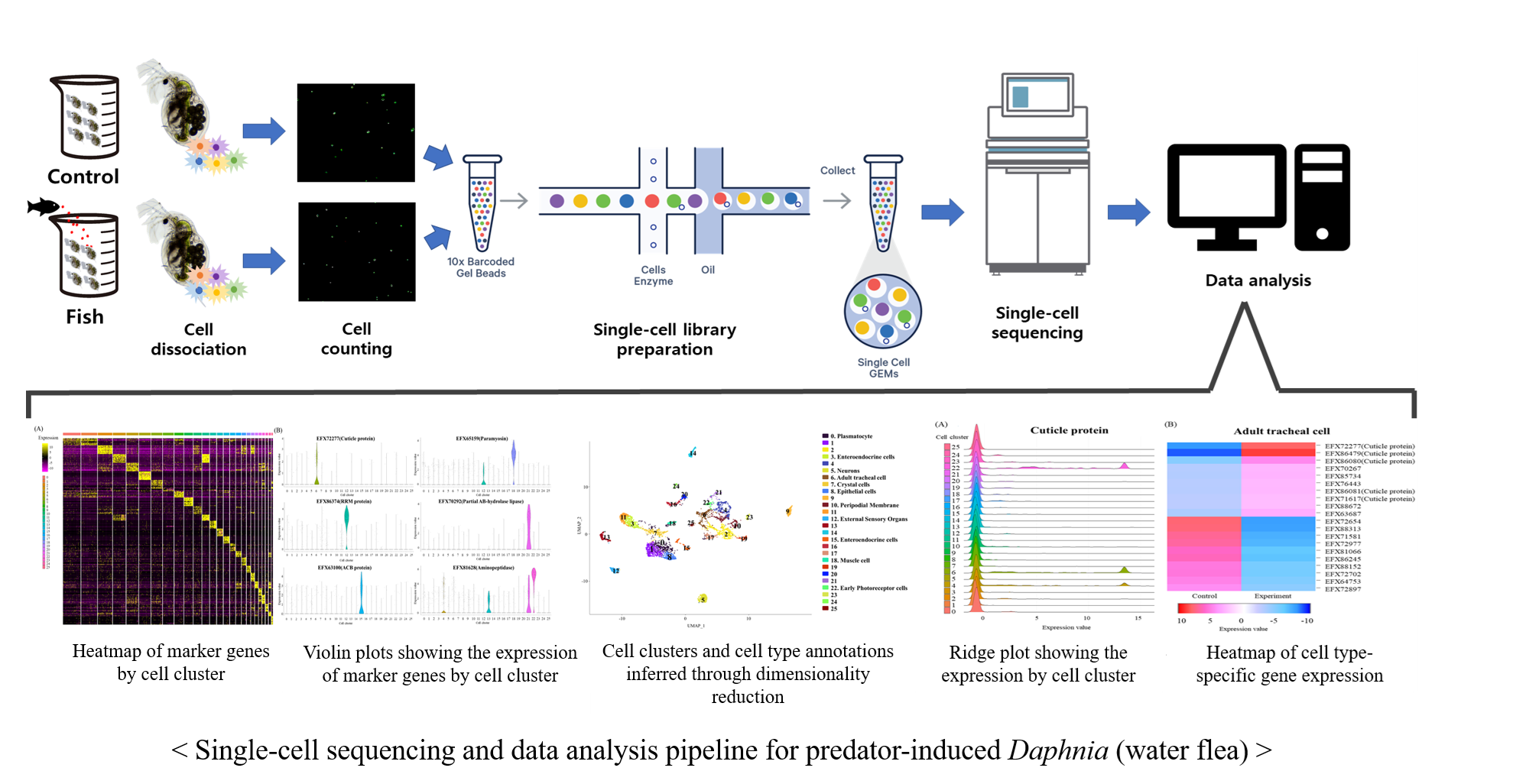상명대 생물정보학 연구실
Research
A single cell multiomics study for understanding predator induced adaptation of Korean Daphnia galea
A single cell multiomics study for understanding predator induced adaptation of Korean Daphnia galeata
This study aims to investigate population-specific adaptive differences in Daphnia galeata in response to predator cues at the single-cell transcriptomic and epigenomic levels across different tissues.

Predator-induced adaptive traits in D. galeata are regulated at the single-cell level within tissues composed of diverse cell types, mediated by factors such as hormonal signaling. Understanding these regulatory mechanisms requires a systematic analysis of the distinct roles of individual cells within tissues and their functional responses to environmental stimuli. To achieve this, we will observe predator-induced adaptive traits, generate multi-omics single-cell data, and analyze genetic responses at both the tissue and cellular levels. This study aims to elucidate cell- and tissue-specific regulatory mechanisms, providing an integrated understanding of adaptive responses and the molecular basis of predator-induced adaptation.
By conducting an in-depth analysis of gene expression and epigenetic modifications at the single-cell level, this research will offer a systems biology perspective on environmental adaptation in Daphnia. Additionally, these findings are expected to support the establishment of Daphnia as a model organism for Korea-specific ecotoxicological assessments.

